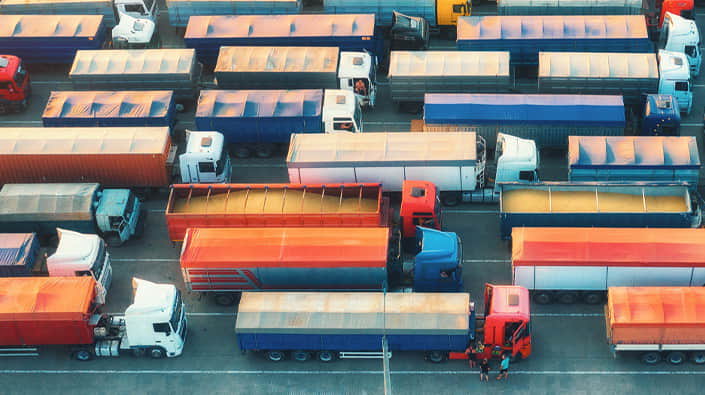Date of publication: 19 March 2024
Olena Omelchenko, Partner, Head of International Trade Practice
Source: European Pravda
How should the state support Ukrainian business?
Against the background of ongoing trade tensions between Poland and Ukraine, the presentation of the nationwide economic initiative “Made in Ukraine” was unveiled. Spearheaded by President Volodymyr Zelensky, this platform signifies a concerted effort to bolster Ukrainian businesses. During the presentation, the head of state notably extended gratitude to the entrepreneurial community operating within Ukraine. He specifically commended those who contribute to the nation’s workforce, facilitate local production, and thereby fortify the economic foundation crucial for societal sustenance and resilience against Russian aggression.
Does this initiative suffice to protect Ukrainian manufacturers adequately?
Specifically, in order to effectively enact President Zelensky’s newly unveiled economic strategy, it seems both logical and prudent to institute mechanisms aimed at safeguarding domestic producers against the influx of imported goods that unfairly skew competition within our local market.
The only legal tool
The disjunction between rhetoric and action persists: despite affirmations of prioritizing Ukrainian manufacturers, the existing mechanism for business protection remains largely dormant in practice.
This singular instrument, sanctioned by both WTO agreements and the Association Agreement between Ukraine and the EU, stands as the sole recourse for shielding domestic producers.
There is legislation in Ukraine which provides for the protection of domestic producers against the dangers of dumping, subsidized imports, and surging imports of goods.
In case of harm inflicted upon national producers by such imports, they have the right to petition the Ministry of Economy to convene a session of the Interdepartmental Commission on International Trade (hereinafter referred to as the “Commission”), thereby instigating a trade investigation and potentially imposing measures to protect Ukrainian goods from the imports.
Consequently, this process may result in the imposition of anti-dumping, countervailing duties, special levies, quotas, or entering into price commitments with foreign manufacturers or exporters.
The Commission, rather than the Verkhovna Rada, is vested with the authority to initiate trade investigations and impose duties, which, in theory, should allow to react and help national producers as soon as possible.
However, the reality starkly contrasts with theory: as of today, the Commission fails to operate in accordance with legal requirements and the pressing needs of the business community.
In actuality, over the past two years, the Commission convened only once, during which critical decisions regarding the imposition of anti-dumping measures were made. This solitary meeting enabled the resolution of ongoing processes, some of which had been initiated well before the full-scale invasion of the Russian Federation into Ukraine. Importantly, the legal timelines were egregiously flouted, with delays stretching beyond a year or even a year and a half in certain cases.
Contrarily, during subsequent meetings, the Commission opted to either conclude special investigations without implementing protective measures or merely enacted technical adjustments to existing decisions.
For the first time since the application of this mechanism, the Ministry of Economy has abstained from initiating any investigation, thereby foregoing any plans for implementing measures to safeguard national producers.
Strategy of inaction
And this is only a part of the problems emblematic of the challenges plaguing Ukrainian businesses.
From the onset of the full-scale Russian invasion of Ukraine, the Ministry returned all complaints submitted by Ukrainian manufacturers without due consideration.
Despite legislative demands requiring the Commission to render decisions within 30 days of a complaint’s submission by a national producer, there are instances where the Commission delays the consideration of complaints from Ukrainian manufacturers for over seven months.
Throughout this protracted period, Ukrainian producers endure significant setbacks: their market share diminishes, profits dwindle, jobs are slashed, and production capacities are jeopardized.
The situation exacerbates further when examining complaints regarding violations in the review process of measures aimed at extending their application terms. In case of further continued Commission inaction and unresolved deliberations, anti-dumping duties will automatically lapse, rendering them incapable of being reinstated.
If the situation does not change, dumping imports of cement originating from the Republic of Belarus and the Republic of Moldova, rolled steel with a corrosion-resistant coating originating from the People’s Republic of China, rubber stoppers for medical purposes from China and Poland, electric incandescent lamps from China and the Republic of Belarus, and table salt from Belarus may resume as early as 2024.
In addition, anti-dumping measures on the import of urea-formaldehyde resin, cement, glass containers for medical purposes, rolled steel with a corrosion-resistant coating originating from the Russian Federation, as well as special measures on sulfuric acid and oleum and fresh roses, regardless of the country of origin and export, will cease to apply.
Currently, only two reviews of anti-dumping duties are ongoing: regarding the import of seamless cold-rolled steel pipes originating in the PRC and fittings and wire rods originating in the Russian Federation.
World practice shows that such reviews are carried out in a short period of time, and based on their results, the majority of measures are extended, if the circumstances have not changed significantly. In both instances, the usual terms of review have been significantly disregarded.
There is a number of cases of evasion of anti-dumping duties through other states – most often this is evasion of the settlement of a duty applied to the import of Chinese goods.
Unfortunately, both the Ministry and the Commission remain inert in implementing measures to mitigate such occurrences. Despite the fact that such inertia causes a significant underpayment of funds to the state budget and renewed damage to the national producer.
The imposition of safeguards invariably hinges on political considerations. This elucidates why Ukraine refrains from taking action against our partners, including EU member states, the United States, Great Britain, or Canada.
However, it is absolutely unclear why Ukraine fails to protect its domestic producers from the onslaught of cheap imports originating from countries like China, India, Malaysia, and Pakistan, all of which pose a grave threat to Ukrainian economy. Moreover, the cessation of measures targeting imports from Belarus and the Russian Federation exacerbates the situation.
Such passivity starkly contradicts national interests.
Under such conditions, national producers are left with no recourse but to pin their hopes on President Volodymyr Zelensky’s new economic policy to redress the situation. Until then, they must rely solely on their own resilience in combating the influx of growing cheap subsidized imports.

